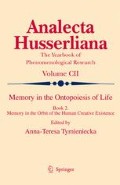Abstract in English
At the beginning of the 20th century, the linguist, philosopher and Galician theologian Á. Amor Ruibal outlines a theory of language based originally in L. Hervás y Panduro, G. de Humboldt., M. Bréal and the Indian, Hebrew, Greco-Roman, Patristic, hermeneutic, positivist and comparatist traditions. From them he infers a synthetic – historical method that combines both morphology and syntax while discovering a relational and translative principle that concerns also the pre-logical or notional foundation of knowledge. The nominal act happens, as the cognitive one, fusing in a nucleus of entitative assignment the qualities proceeding from the object. Such a nucleus is also a designation of the entities that it includes as its own ontological extension and as radical projection, in language, of the morfo-syntactic basis assisted by infixes, metaphony and other modes of the lexical and syntactic course. This is made possible because the nominal and cognitive act re-flow on the pre-logical qualities taking now as their predicate the reality thus perceived, processed and judged. The idea postcedes the judgment and contains already, as the word, a basis of underlying predication instituted by the notional a priori, so that there is a predicative process previous to the constitution of the nuclearized subject. Reality predicates from the entitative nucleus formed on the sensitives that proceed from it. Amor Ruibal establishes thus a principle of real entitative relativity that affects language and objective thought of things. The syntactic form turns into ontological link. The object is processed discursively in its qualities and these are attached in a nominal thematic synthesis: the objet of the subject cognoscens, subject of attributions whose inherent relation is the ontological entity, in a pre-propositional relation. The implicit response to the Hegelian dialectics runs parallel with the system of Amor Ruibal while agreeing with Husserl, since both philosophers discover, each one on his own, as they never knew each other, the ontological conditions of signification, the structure of language and conscience. Once produced, the word re-flows on the cognitive act and assists with its own modality to the constitution of meaning and the expression of the objective essence. It assumes the mental space in which this happens as genetic tension of knowledge. Amor Ruibal thus precedes in several aspects F. de Saussure, both from common readings and personal reflections. He creates a linguistic gnoseology of philosophical scope that is still challenging, after being marginalised for one century, isolated. The structural, generative and cognitive linguistics already find an appealing precedent in this gnoseological system.
Abstract in Spanish
A comienzos del siglo XX, el lingüista, filósofo y teólogo gallego Á. Amor Ruibal esboza una teoría del lenguaje basada originalmente en L. HervÁs y Panduro, G. de Humboldt, M. Bréal y las tradiciones india, hebrea, grecolatina, patrística, hermenéutica, positivista y comparatista. Infiere de ello un método sintético-histórico que conjunta morfología y sintaxis al tiempo que descubre un principio relacional traslativo que afecta también al fundamento prelógico o nocional del conocimiento. El acto nominal acontece, como el cognitivo, fundiendo en un núcleo de asignación entitativa las cualidades procedentes del objeto. Tal núcleo resulta asimismo designación de los entes que comprende como extensión ontológica suya y, en el lenguaje, como proyección radical de la base morfosintÁctica asistida por los adlÁteres, infijos, metafonía y otros modos del decurso léxico y sintÁctico. Esto resulta posible porque el acto nominal y cognitivo refluyen sobre las cualidades prelógicas teniendo ahora por predicado suyo la realidad así percibida, procesada y enjuiciada. La idea poscede al juicio y ya contiene, como la palabra, un fondo de predicación subyacente instituido por el a priori nocional, de tal modo que hay un proceso predicativo anterior a la constitución del sujeto nuclearizado. La realidad predica a su vez del núcleo entitativo configurado sobre los sensibles que de ella proceden. Amor Ruibal establece así un principio de relatividad real entitativa que atañe al lenguaje y al pensamiento objetivo de las cosas. La forma sintÁctica se convierte en vínculo ontológico. El objeto se procesa discursivo en sus cualidades y éstas se adjuntan en síntesis nominal temÁtica: sujeto de atribuciones cuya relación inherente es la entidad ontológica, el objeto del sujeto cognoscens, relación prepropositiva. La respuesta implícita a la dialéctica hegeliana corre paralela con el sistema de Amor Ruibal y sus consonancias con Husserl son varias, pues ambos filósofos descubren, cada uno por su parte, pues no se conocieron, las condiciones ontológicas de la significación y estructura del lenguaje y la conciencia. Una vez producida, la palabra refluye sobre el acto cognitivo y asiste con modalidad propia a la constitución del sentido y a la expresión de la esencia objetiva. Subsume el espacio mental en que acontece como tensión genética del conocimiento. Amor Ruibal precede en varios aspectos a F. de Saussure desde lecturas comunes y reflexiones propias. Crea una lingüística gnoseológica de alcance filosófico prÁcticamente aún hoy, después de un siglo, marginada. La lingüística estructural, generativa y cognitiva ya encuentran antecedente notable y diferenciado en su sistema gnoseológico.
Access this chapter
Tax calculation will be finalised at checkout
Purchases are for personal use only
Preview
Unable to display preview. Download preview PDF.
Editor information
Editors and Affiliations
Rights and permissions
Copyright information
© 2009 Springer Science+Business Media B.V.
About this chapter
Cite this chapter
Domínguez Rey, A. (2009). El a Priori Correlativo Y Ontológico Del Lenguaje Ángel Amor Ruibal (1869–1930). In: Tymieniecka, AT. (eds) Memory in the Ontopoesis of Life. Analecta Husserliana, vol 102. Springer, Dordrecht. https://doi.org/10.1007/978-90-481-2319-3_12
Download citation
DOI: https://doi.org/10.1007/978-90-481-2319-3_12
Publisher Name: Springer, Dordrecht
Print ISBN: 978-90-481-2318-6
Online ISBN: 978-90-481-2319-3
eBook Packages: Humanities, Social Sciences and LawPhilosophy and Religion (R0)

